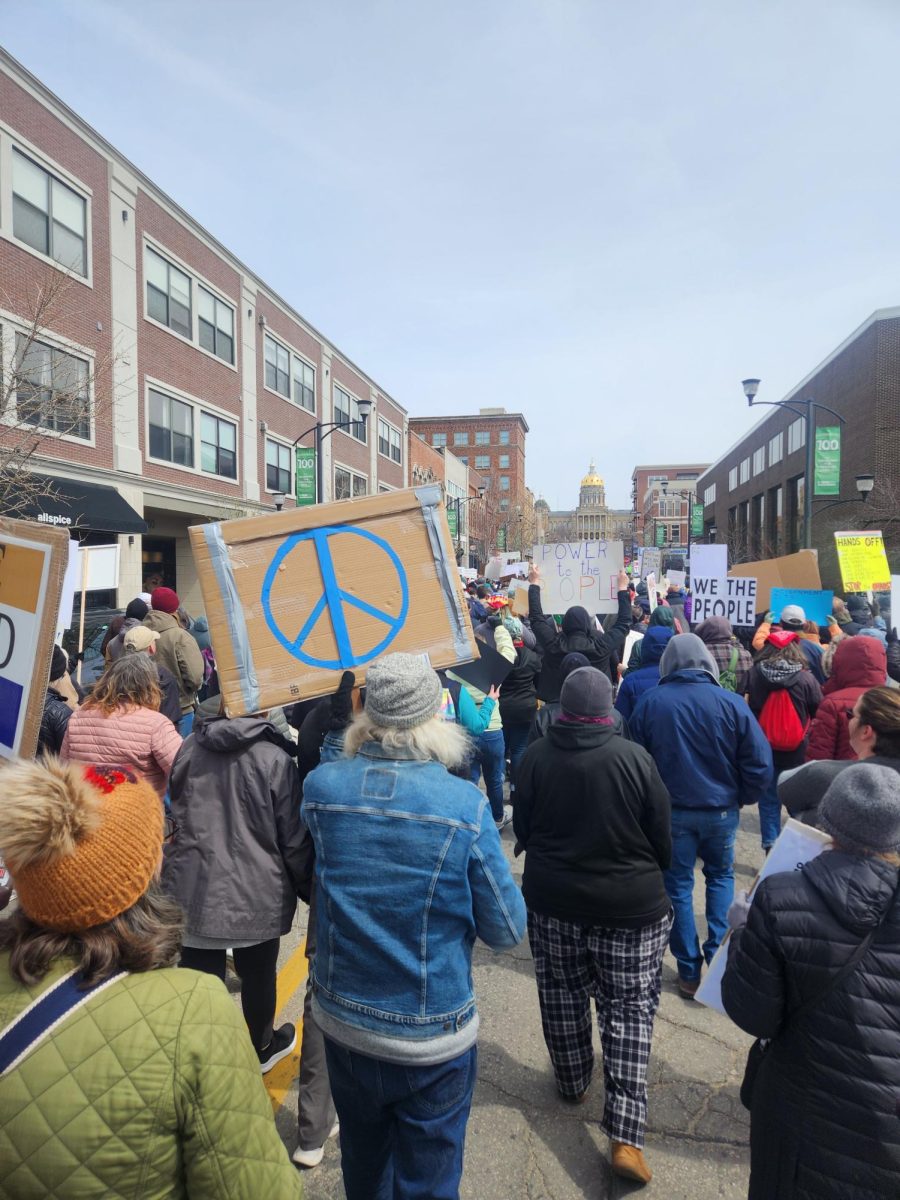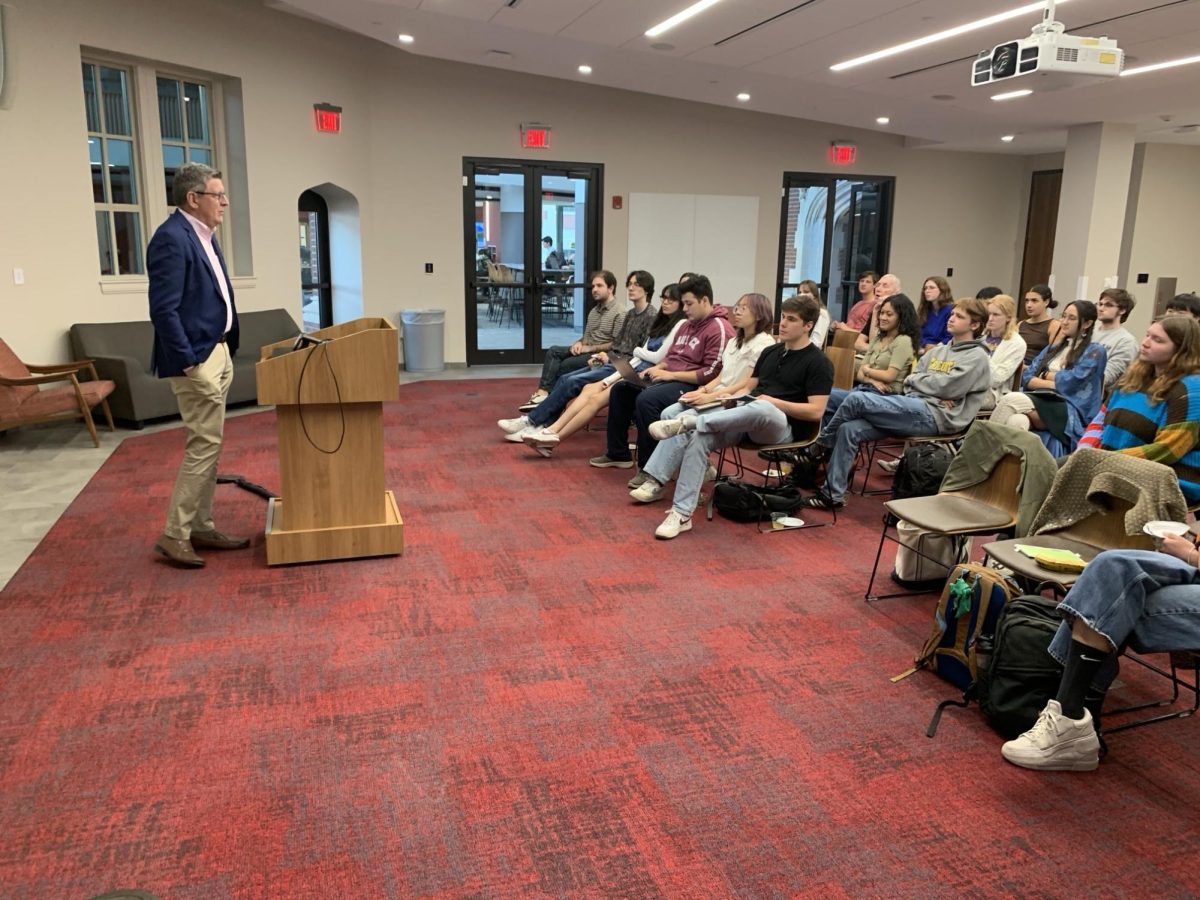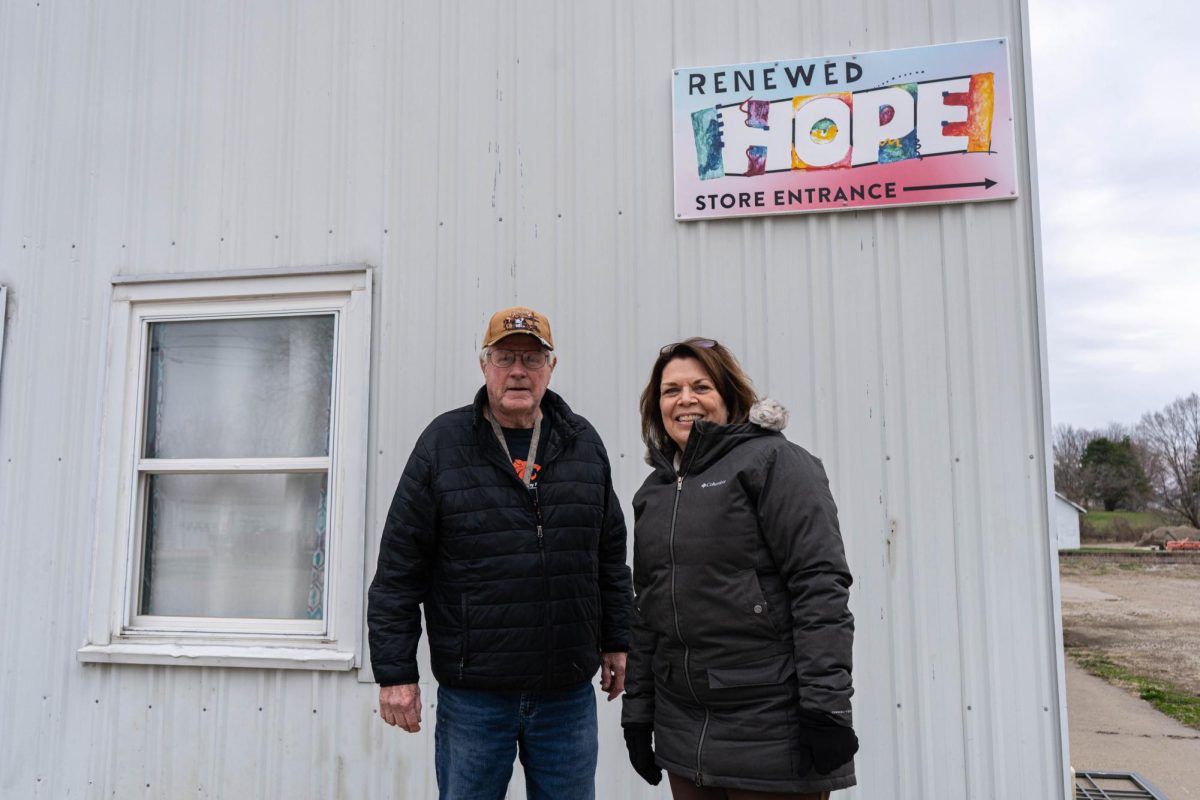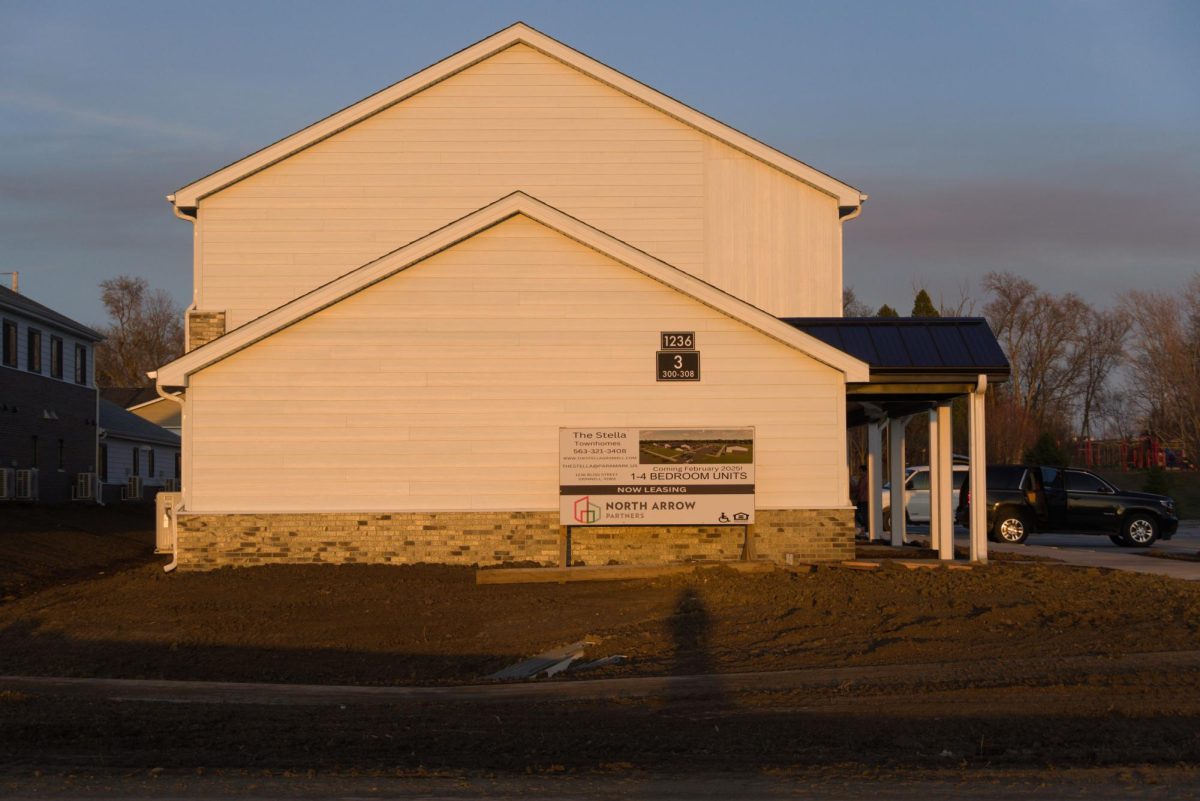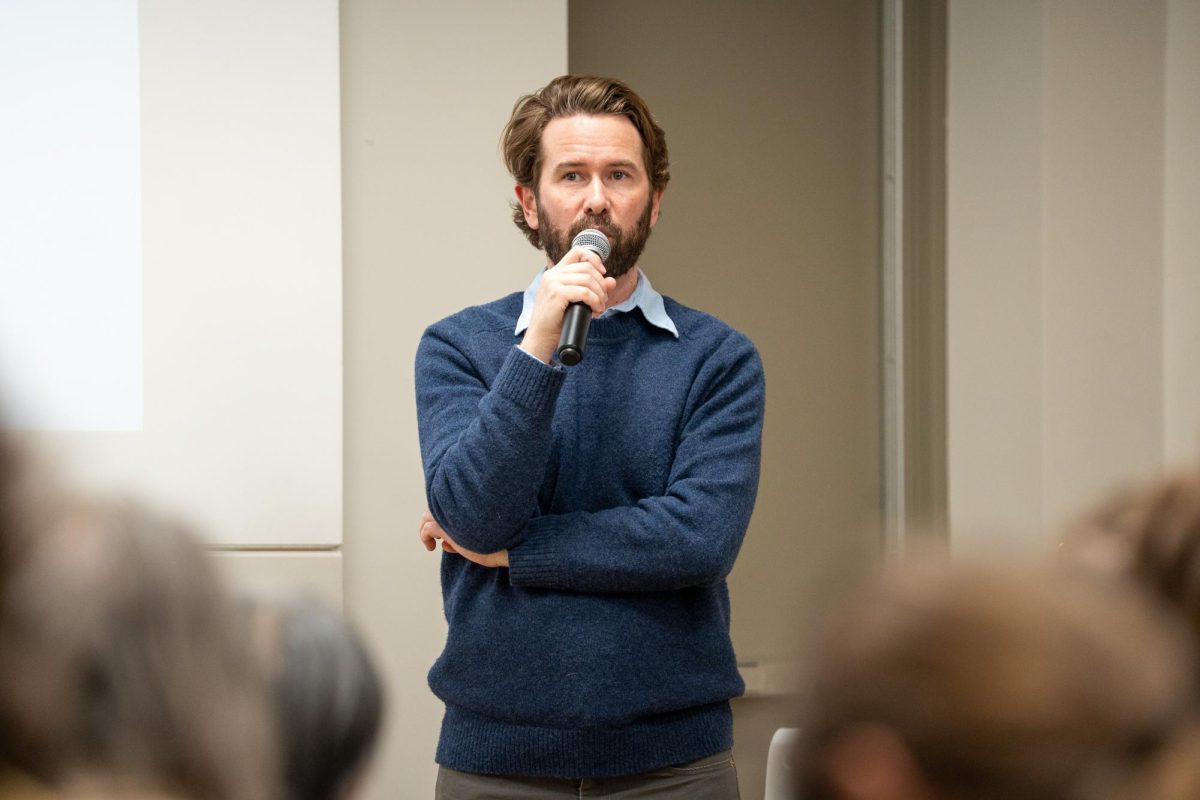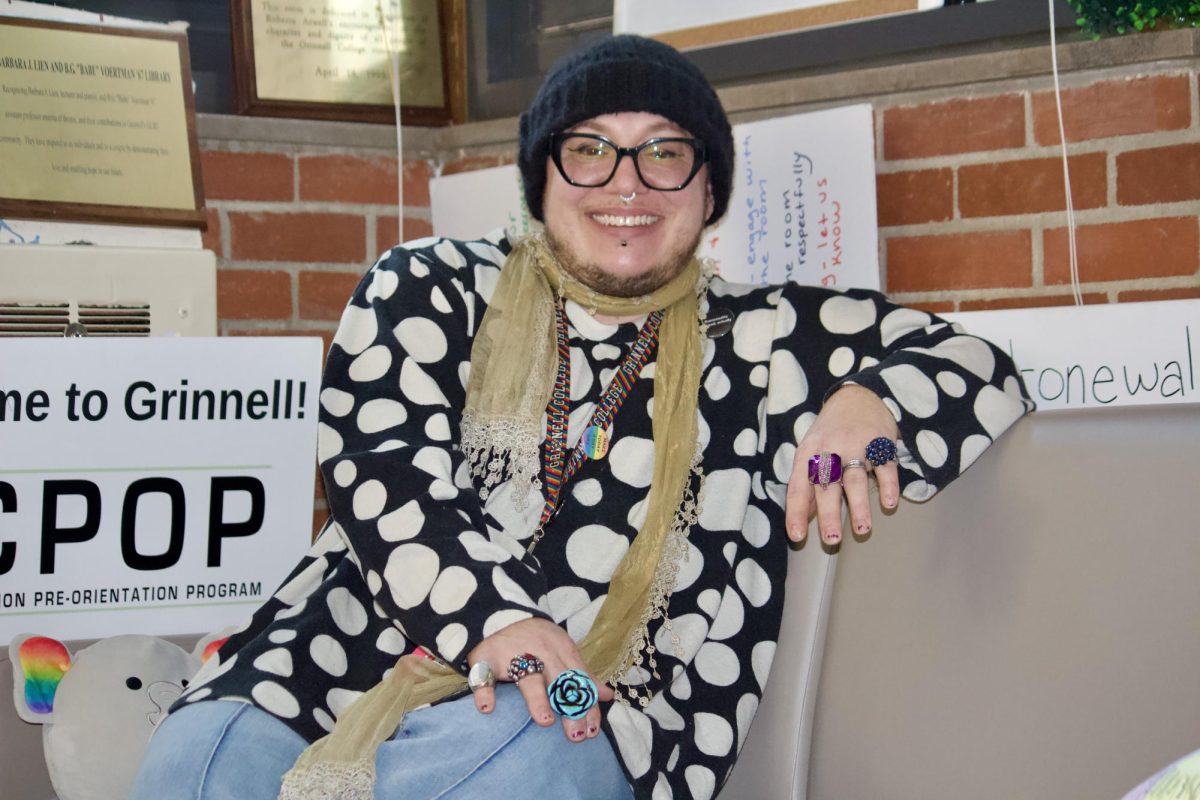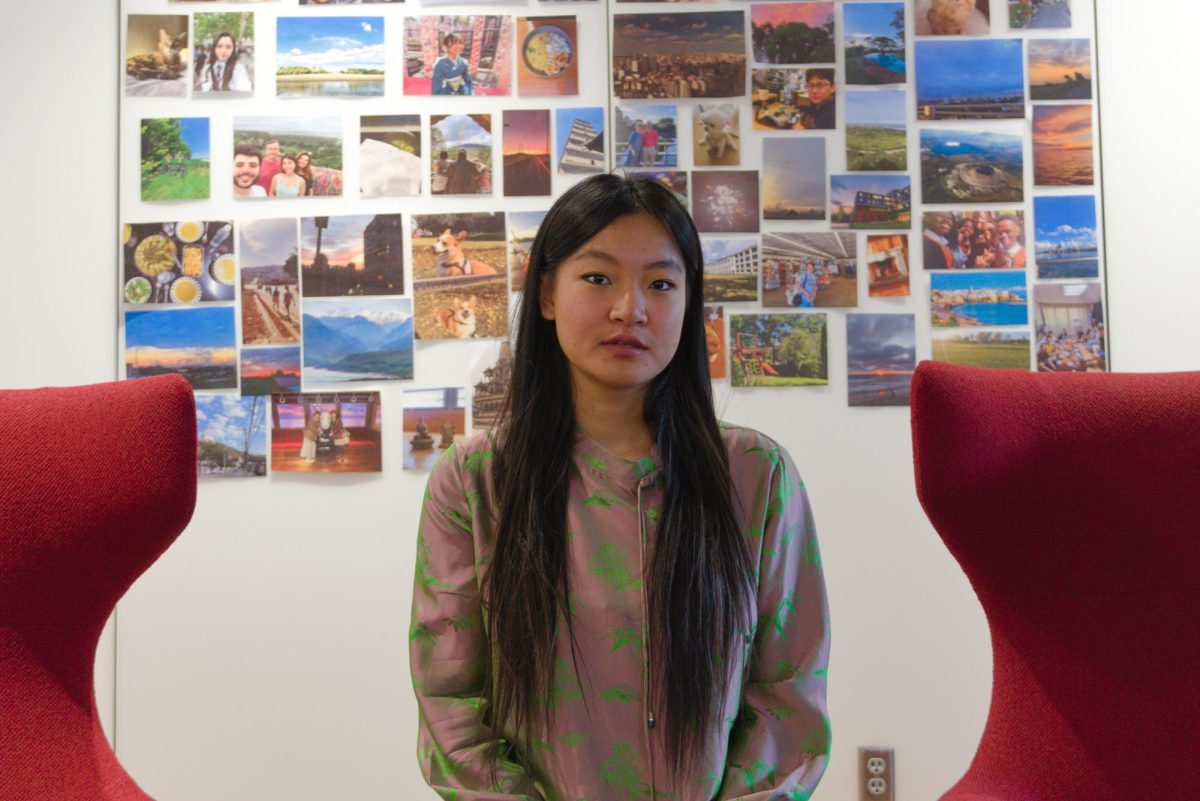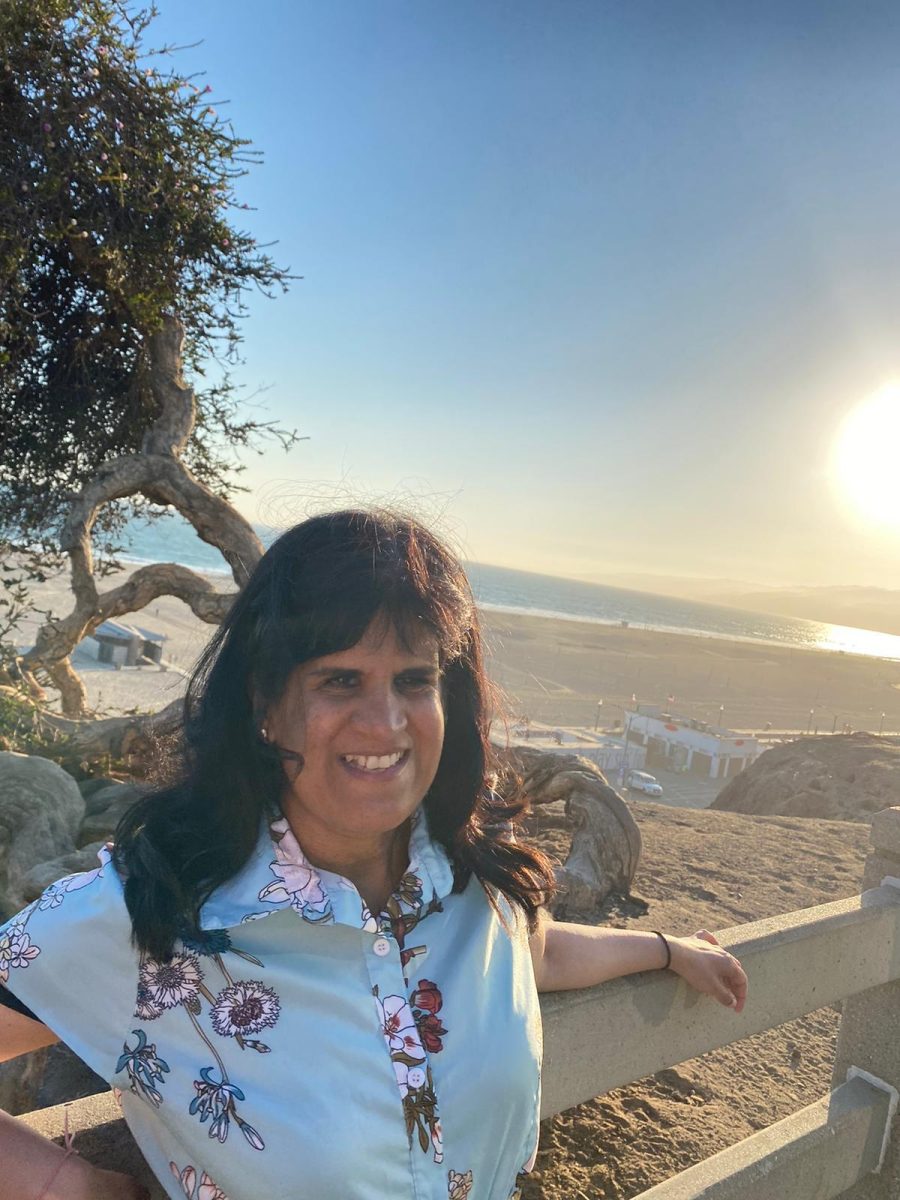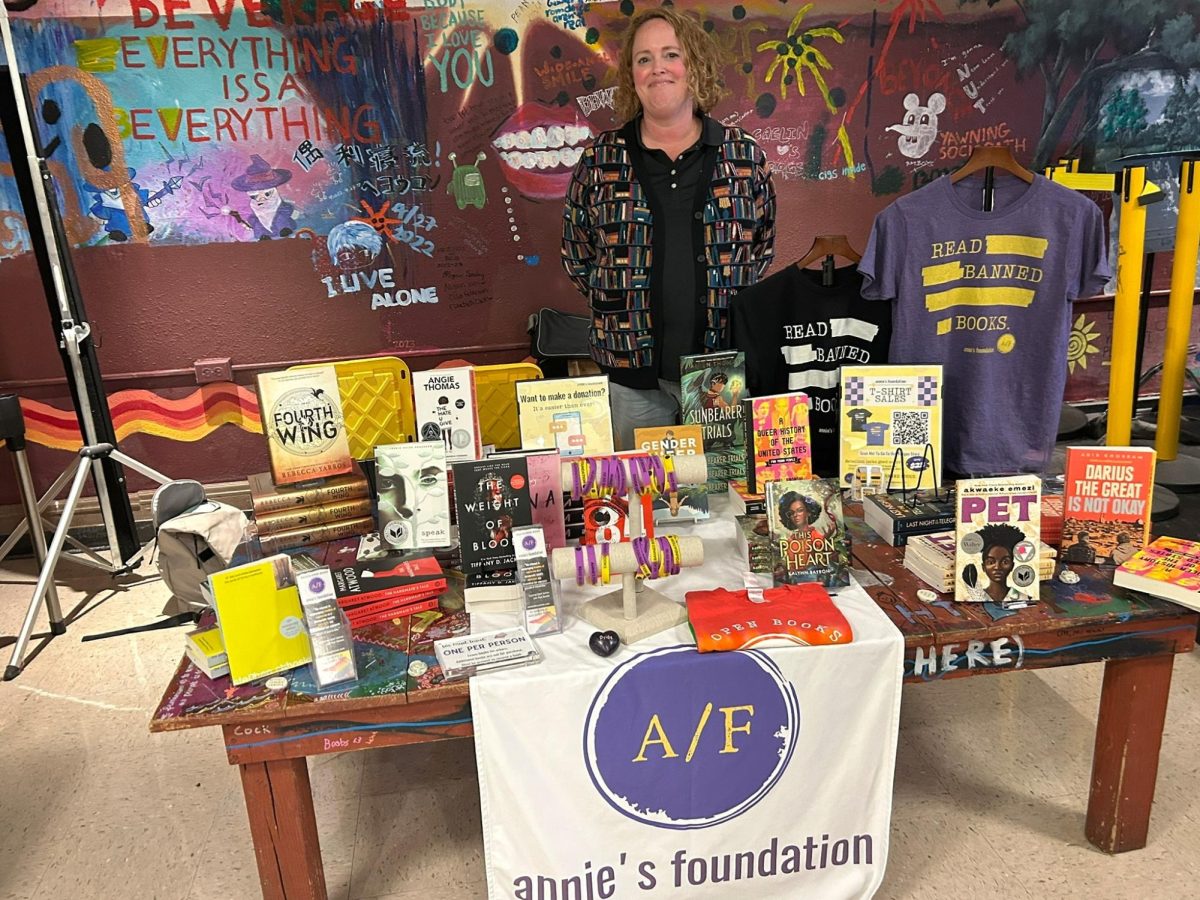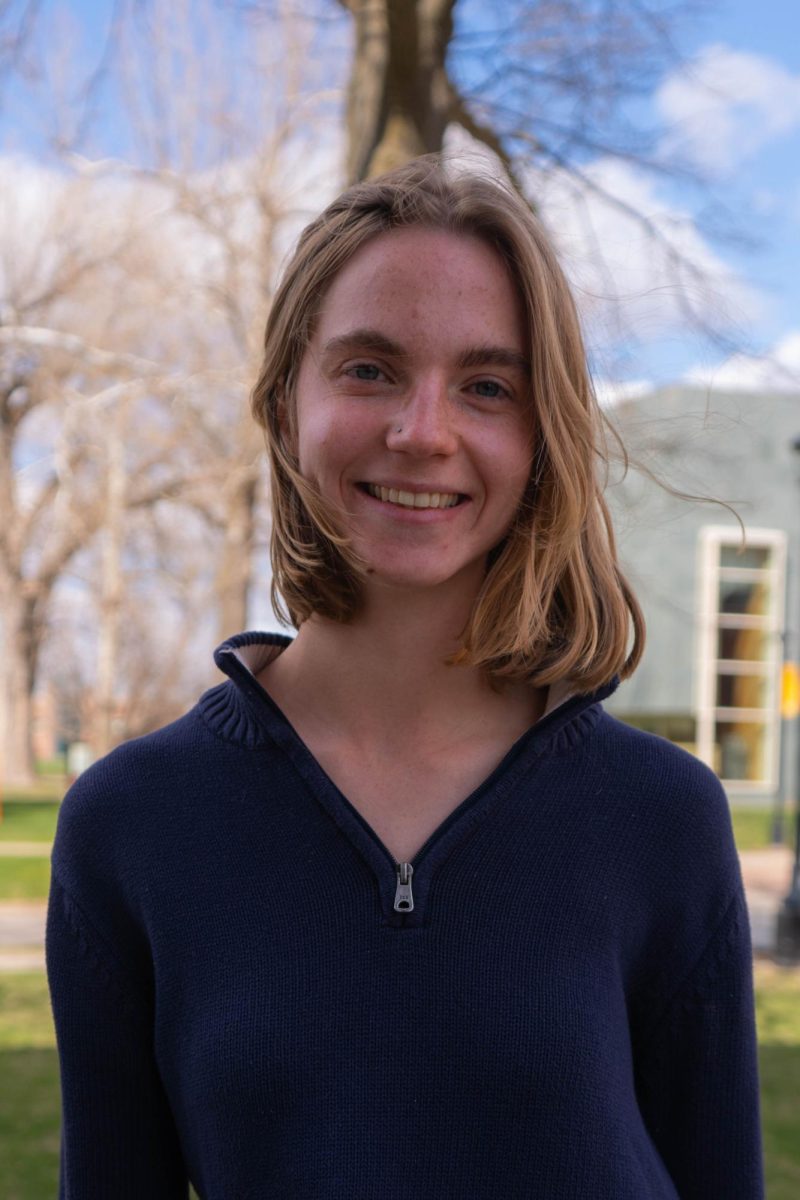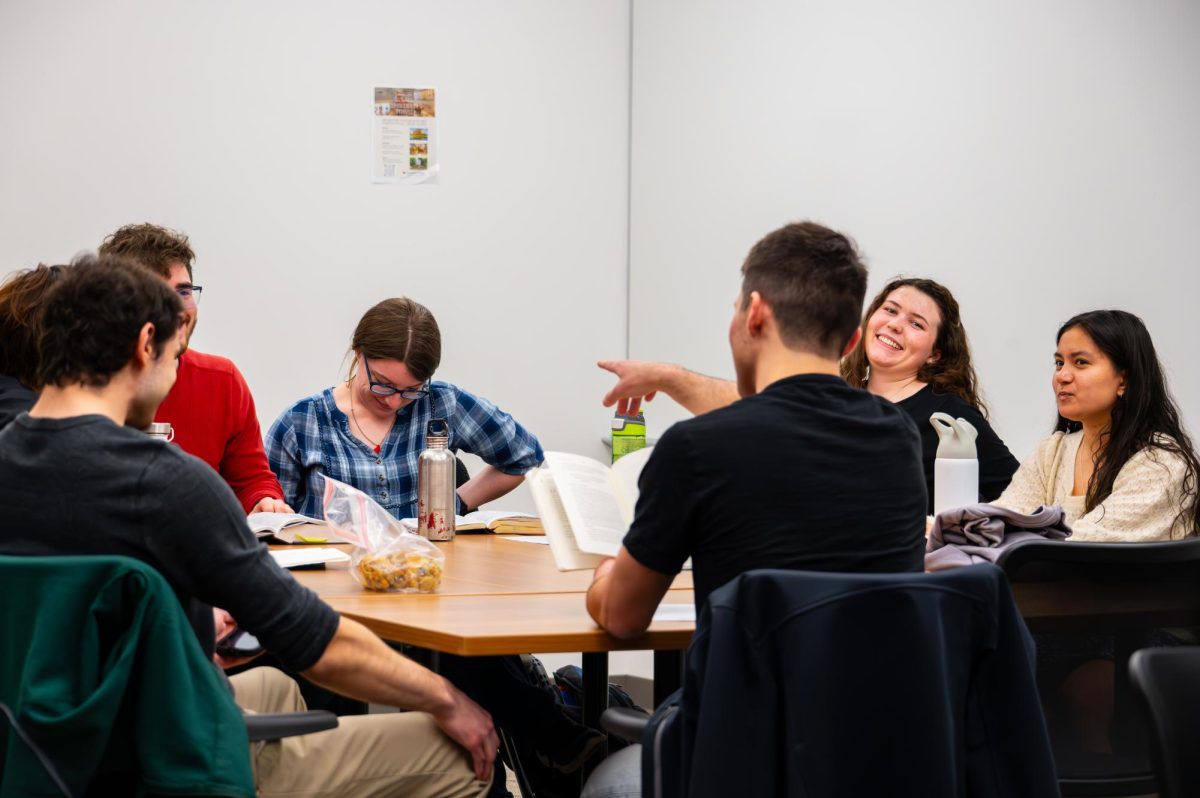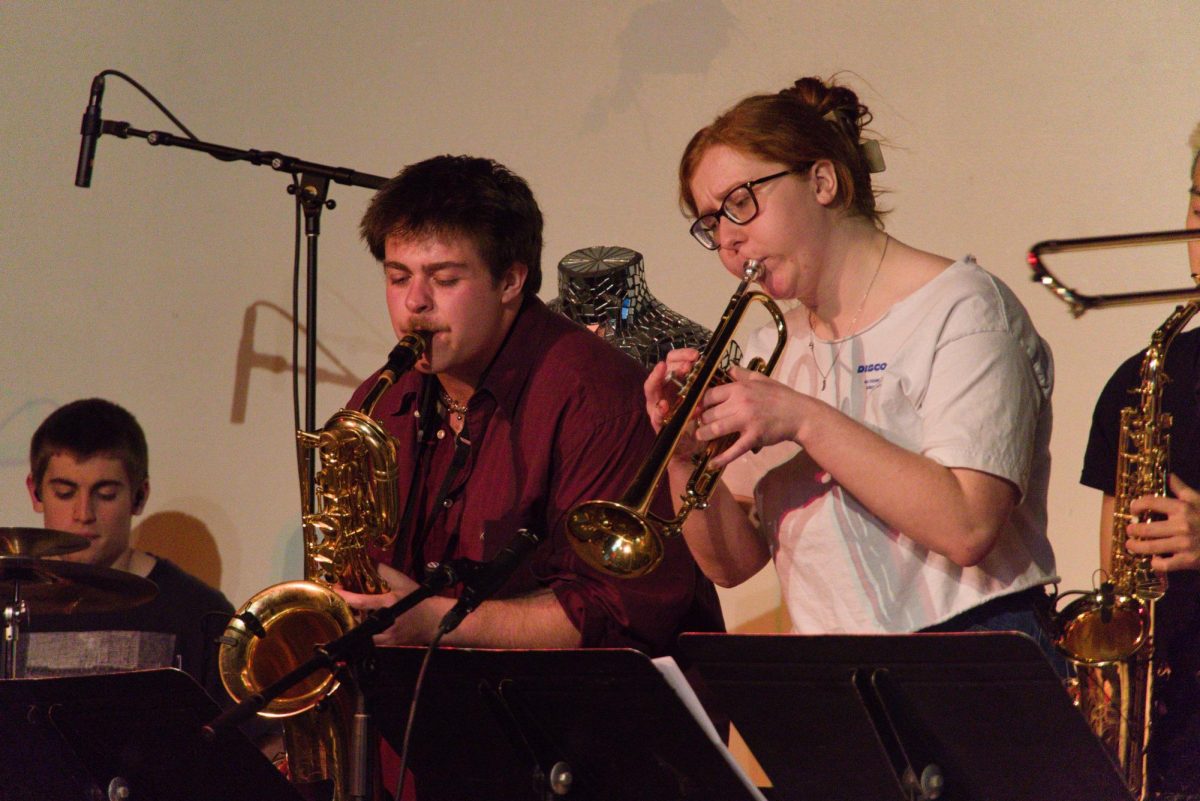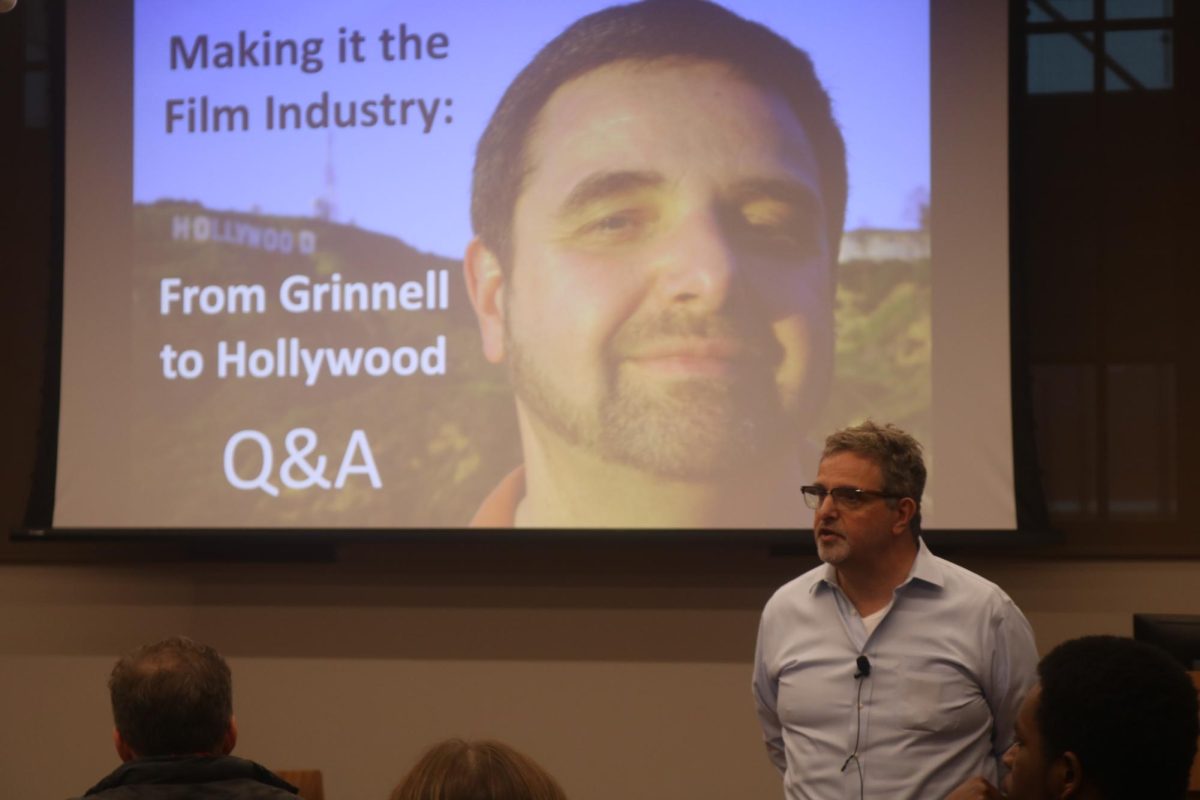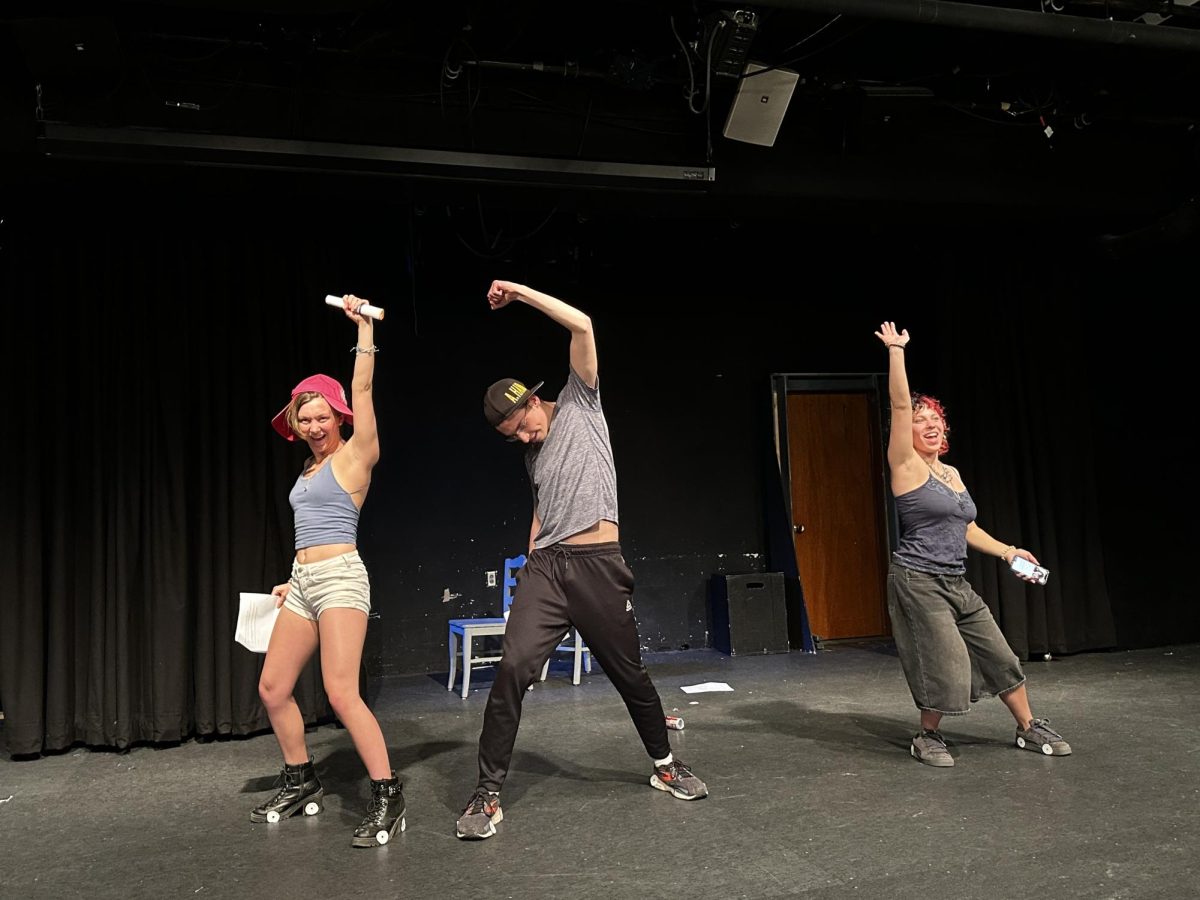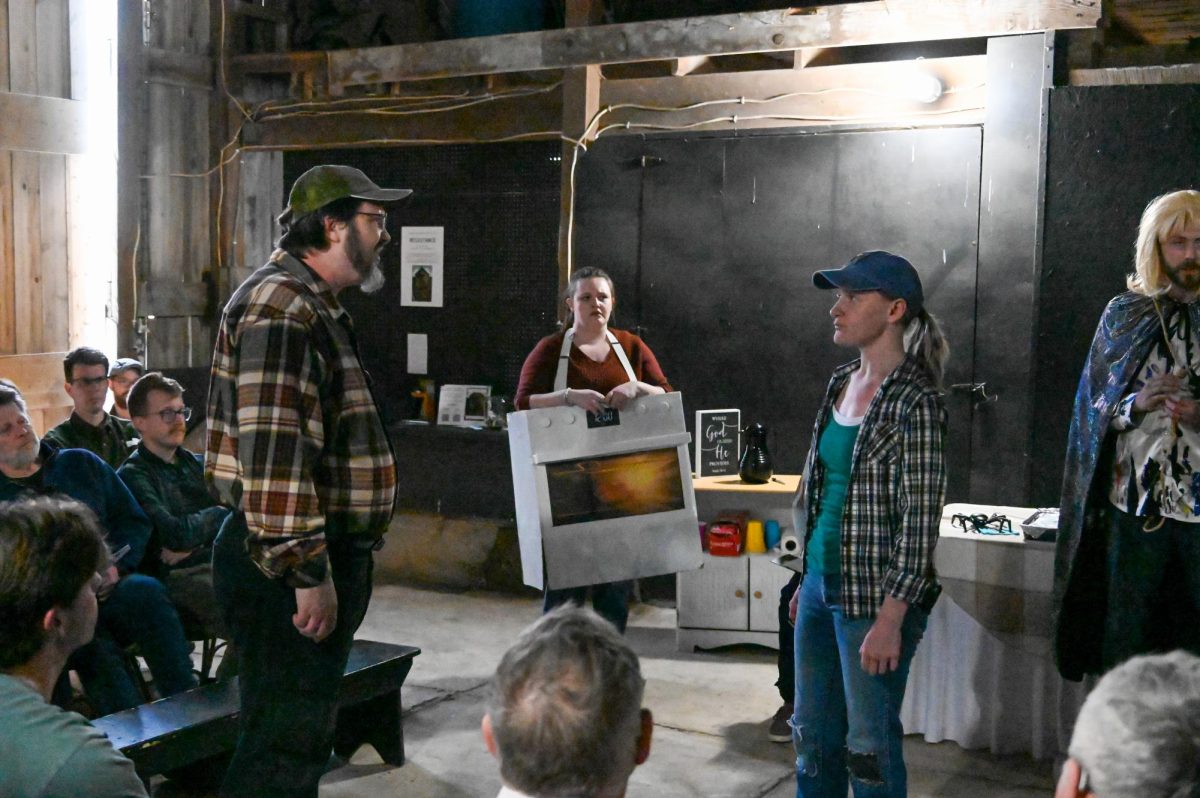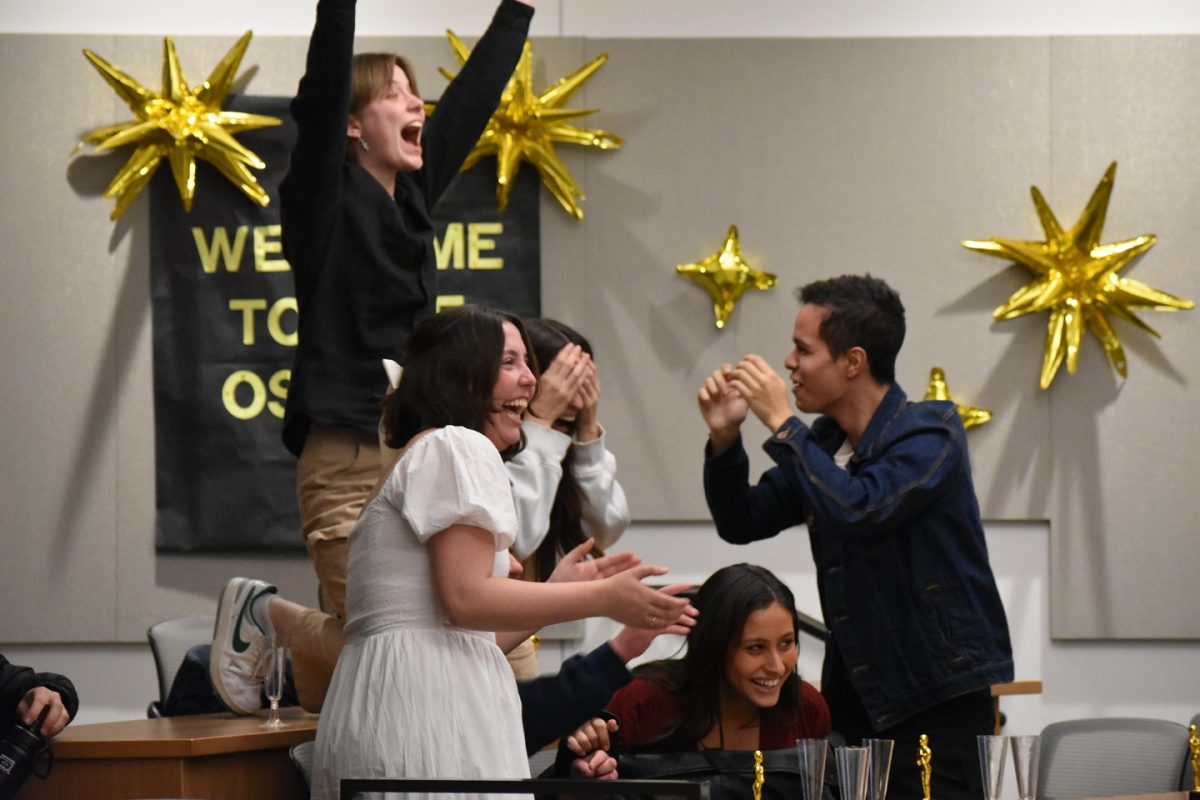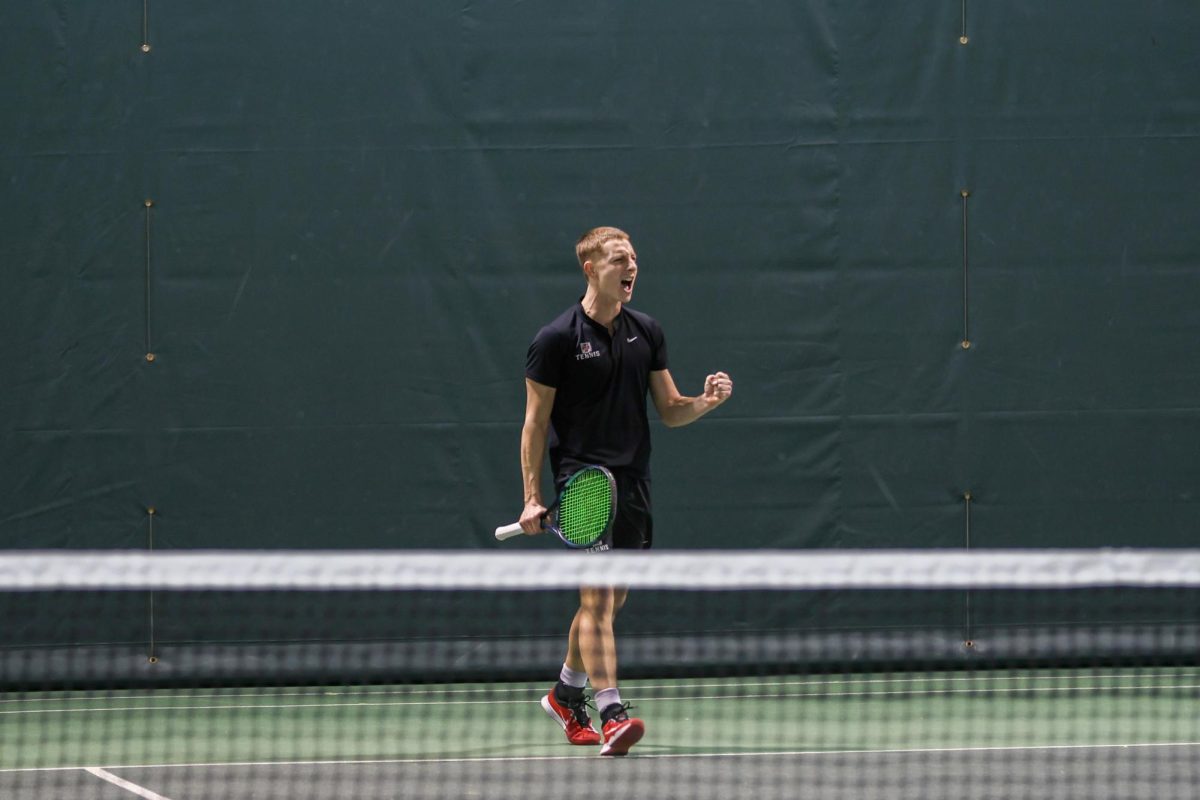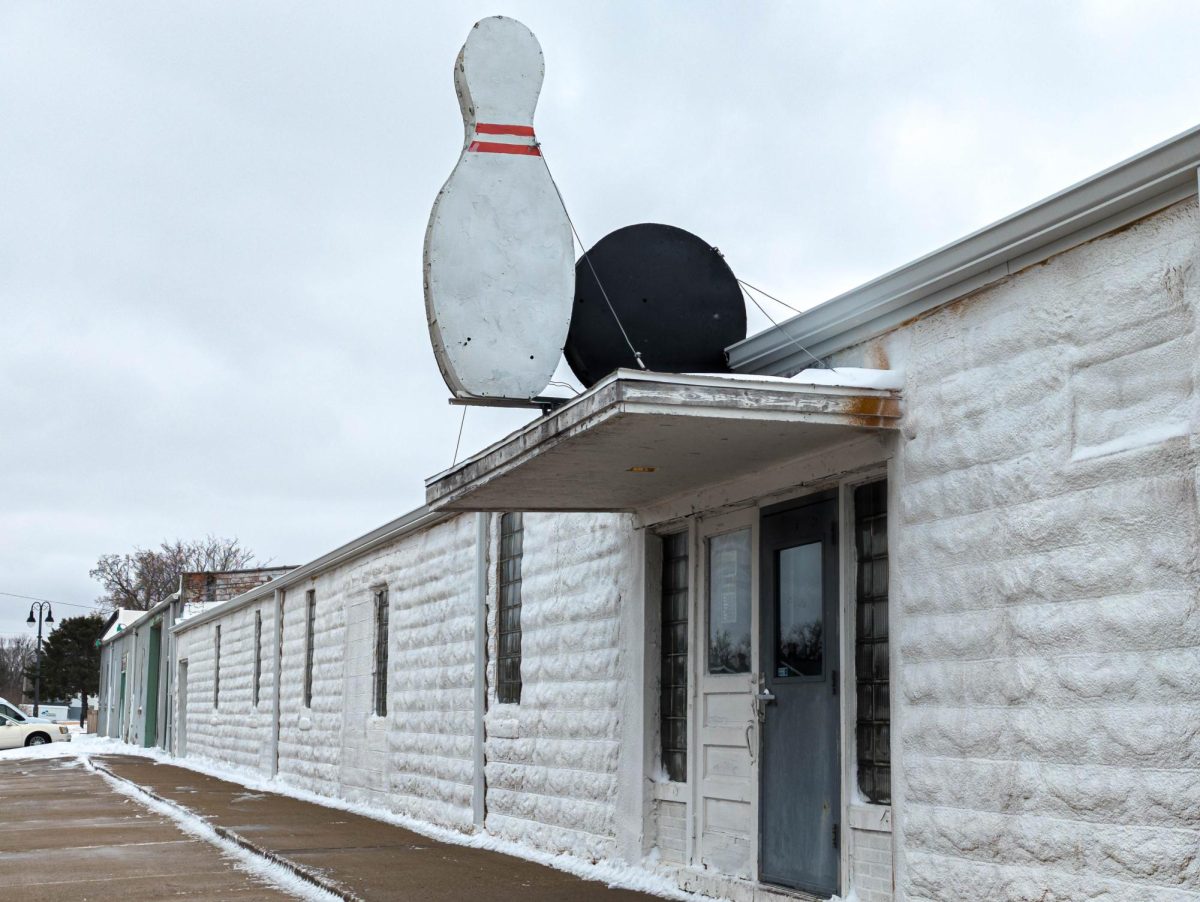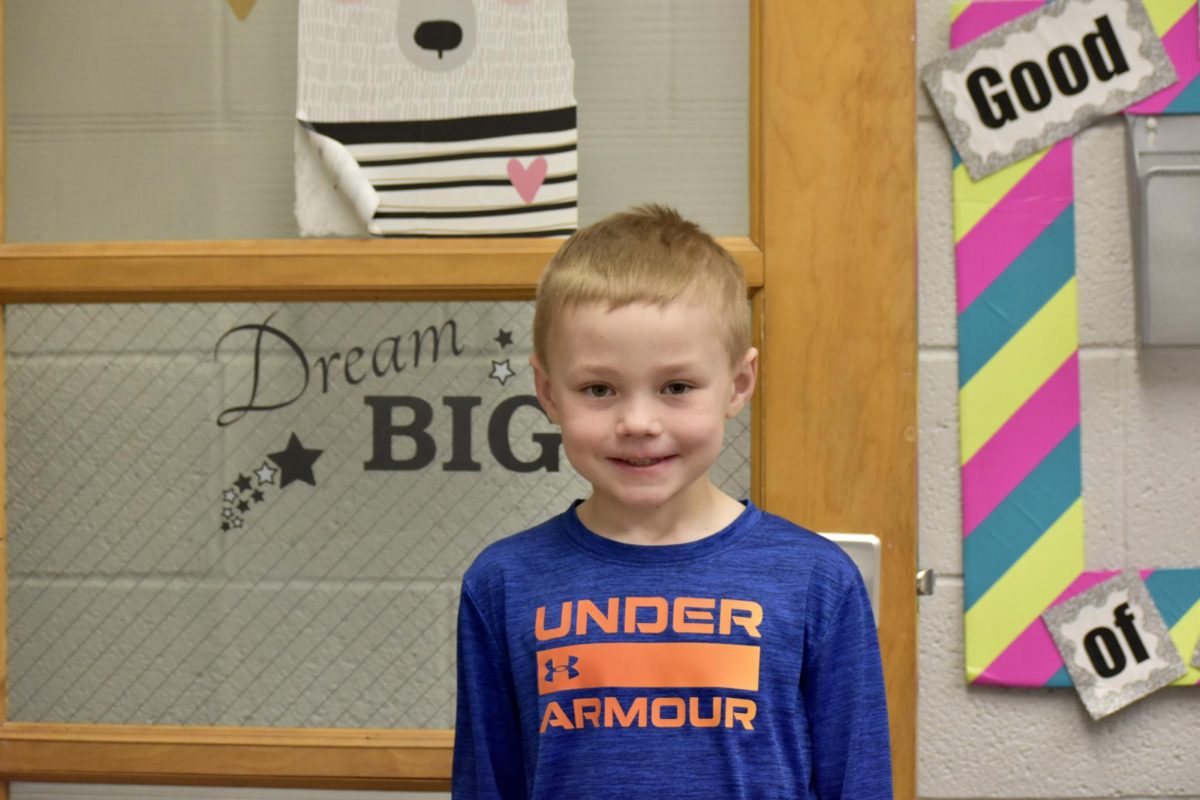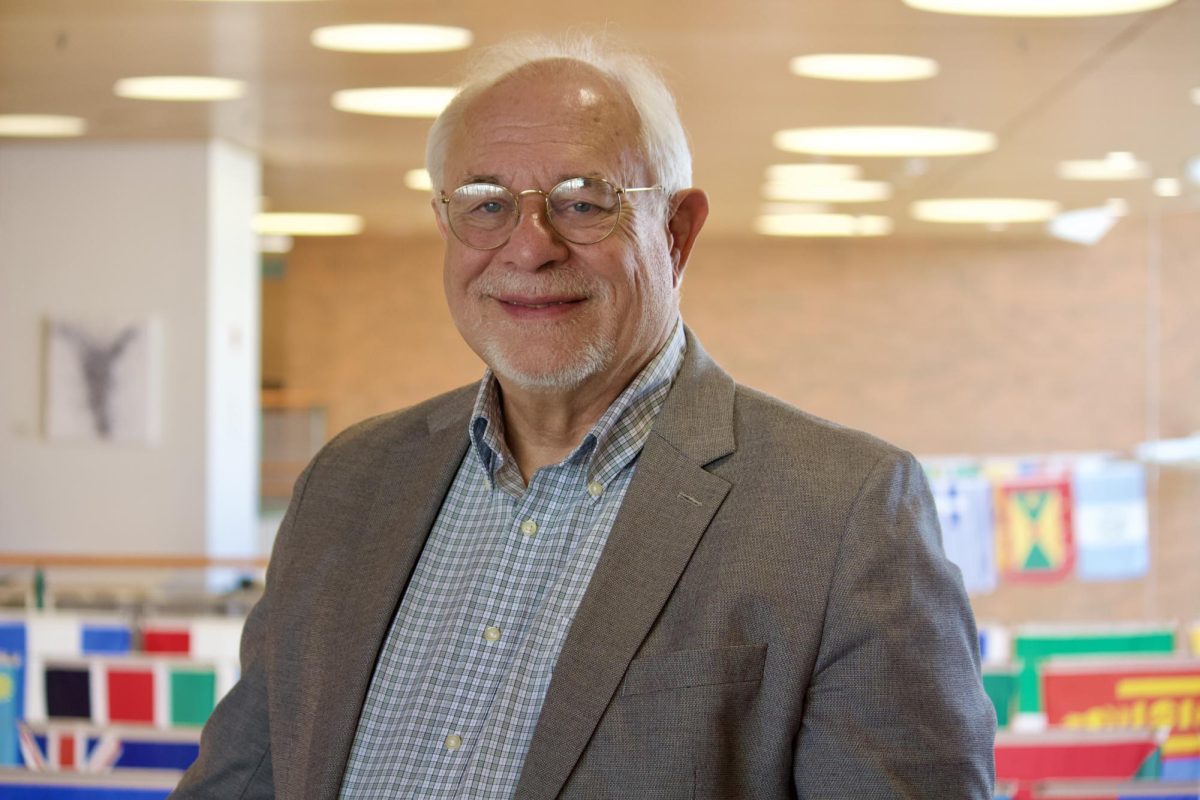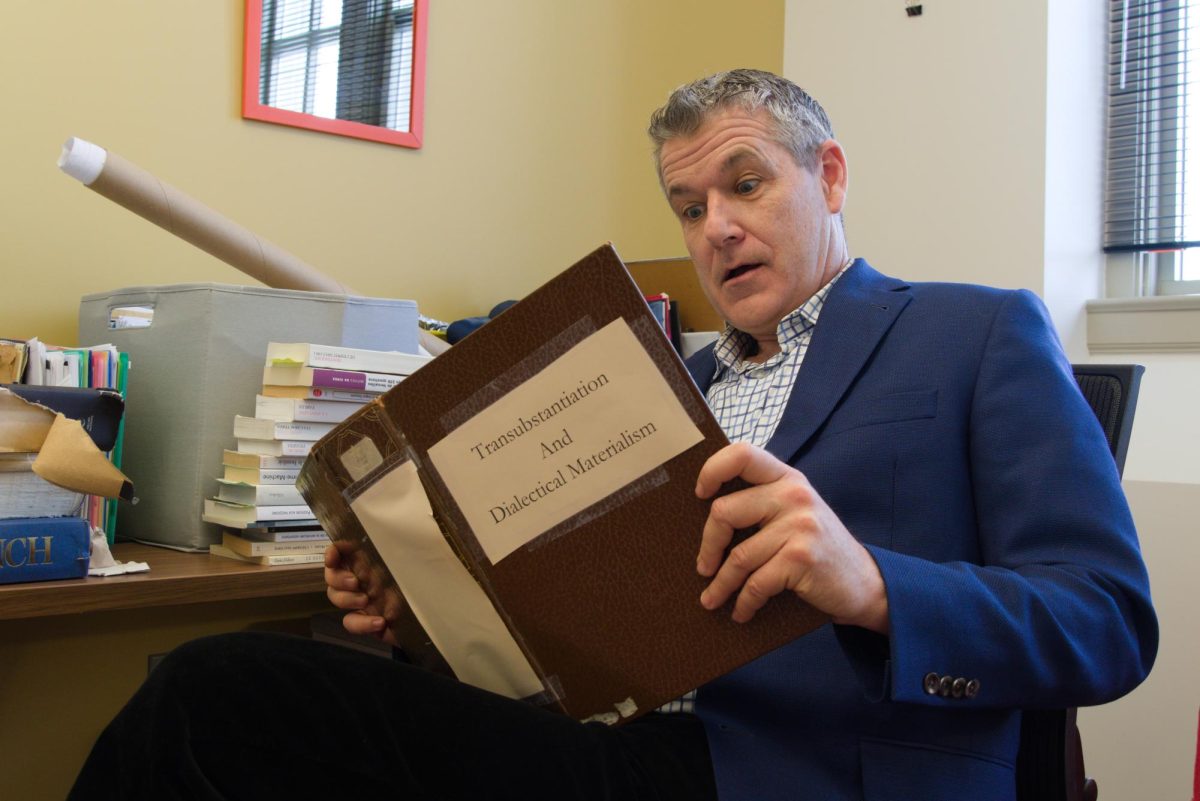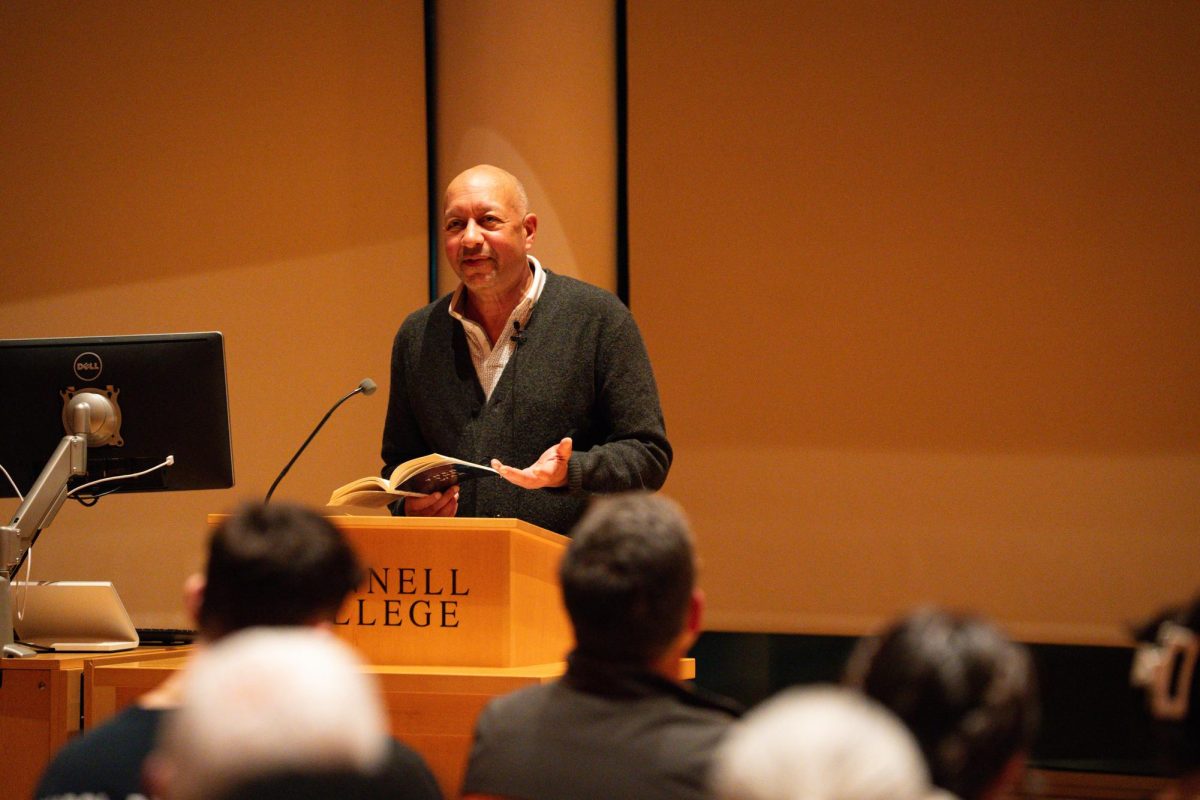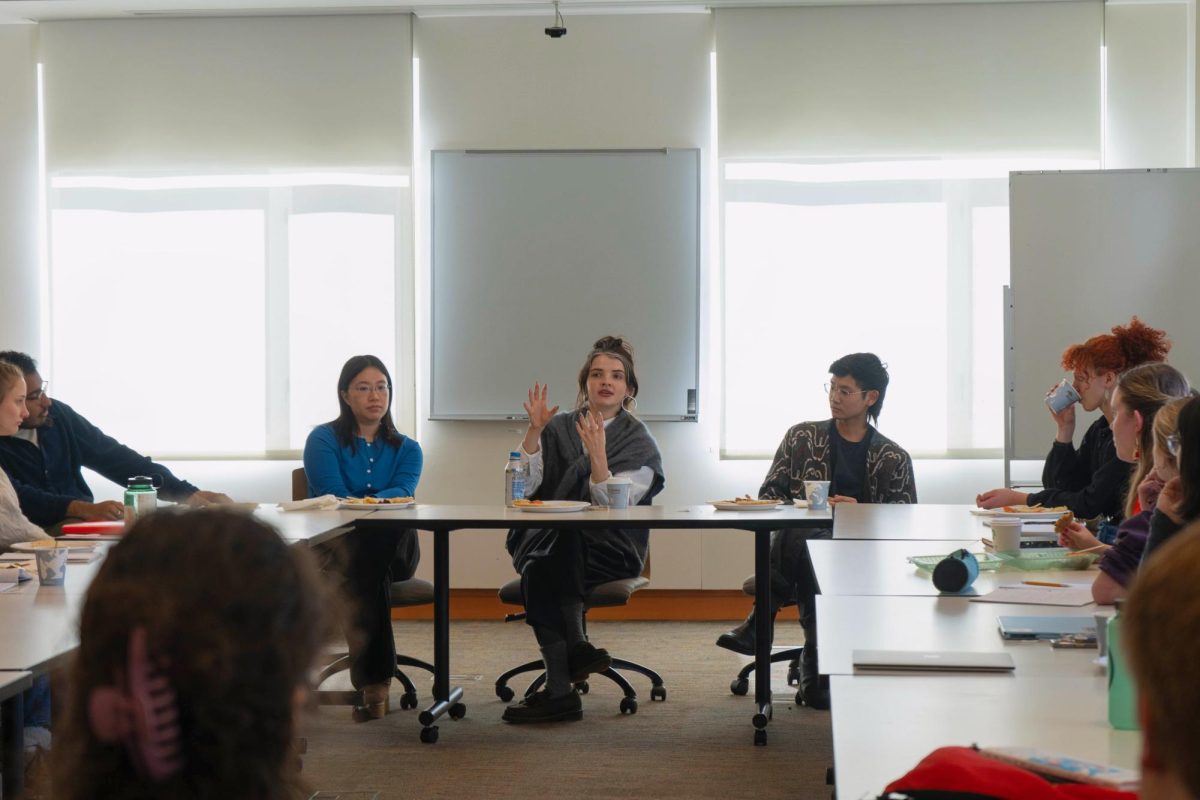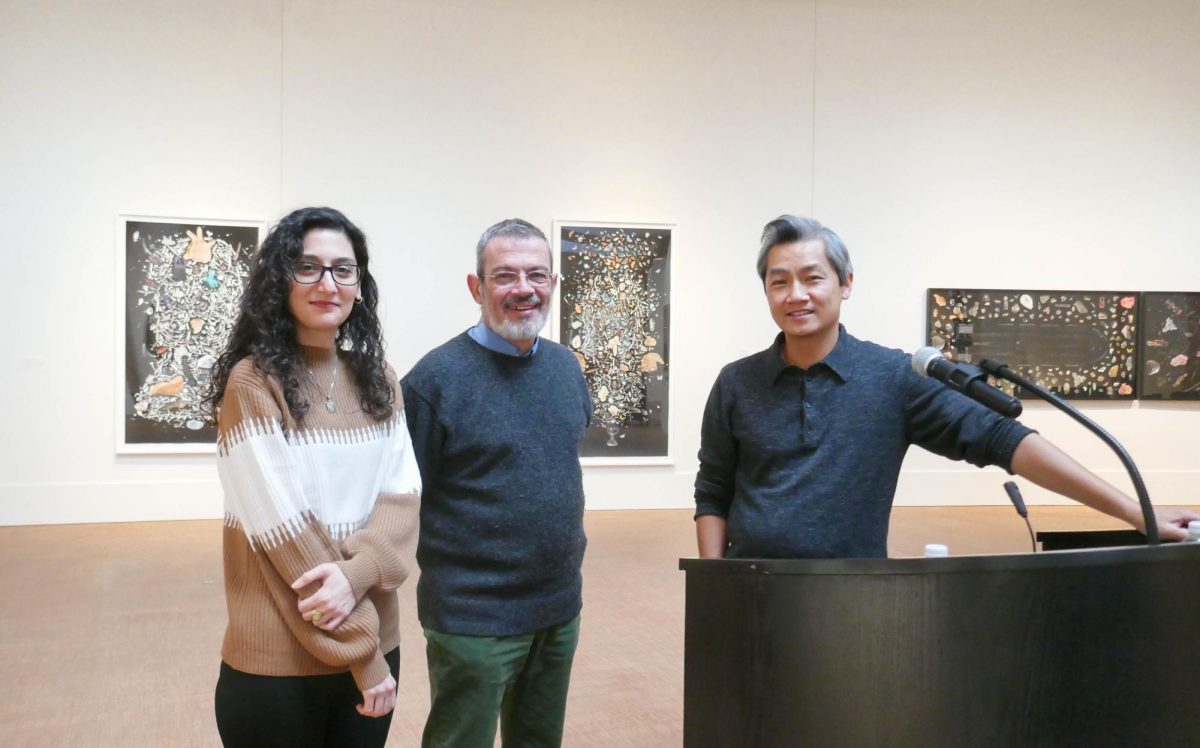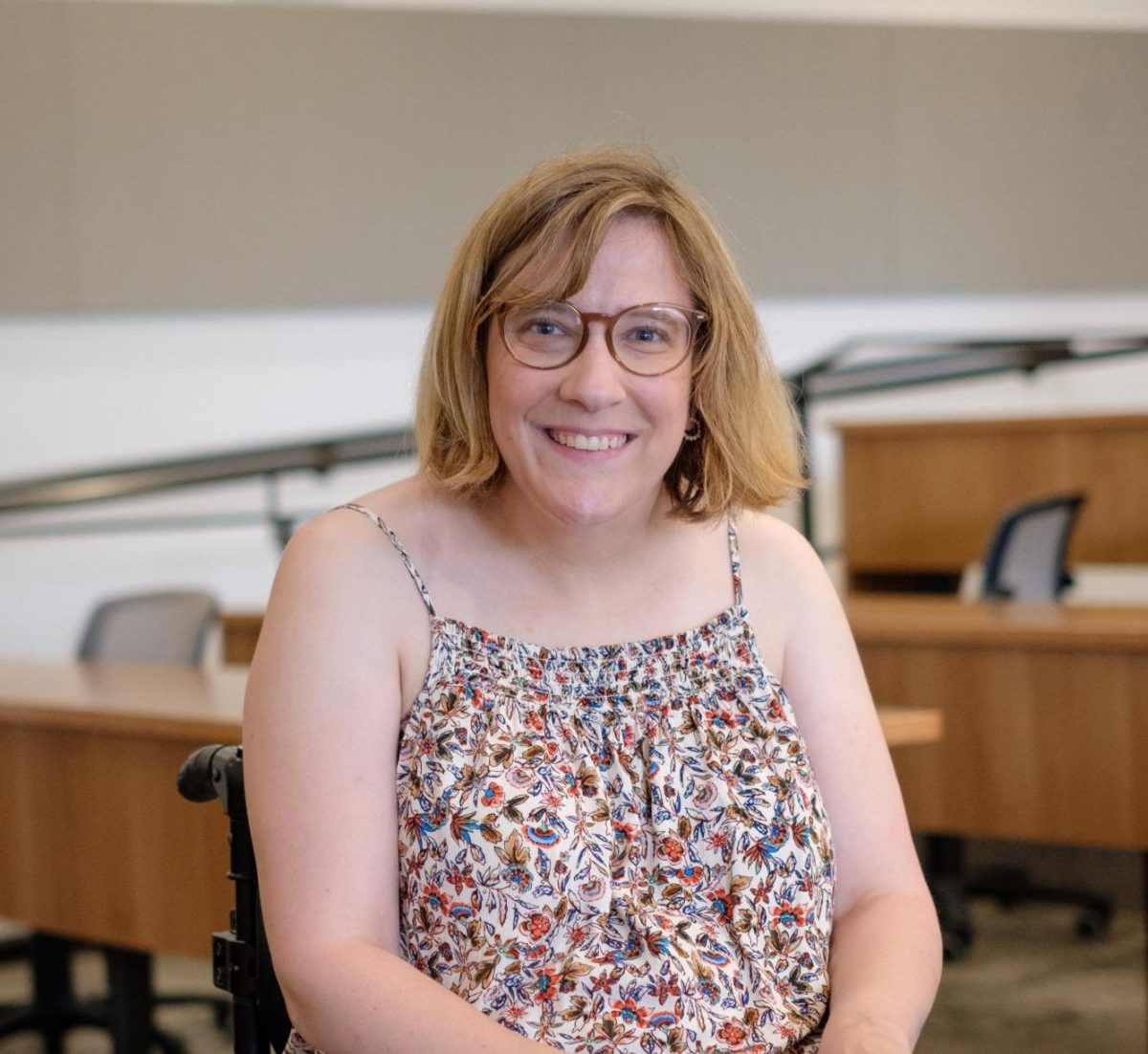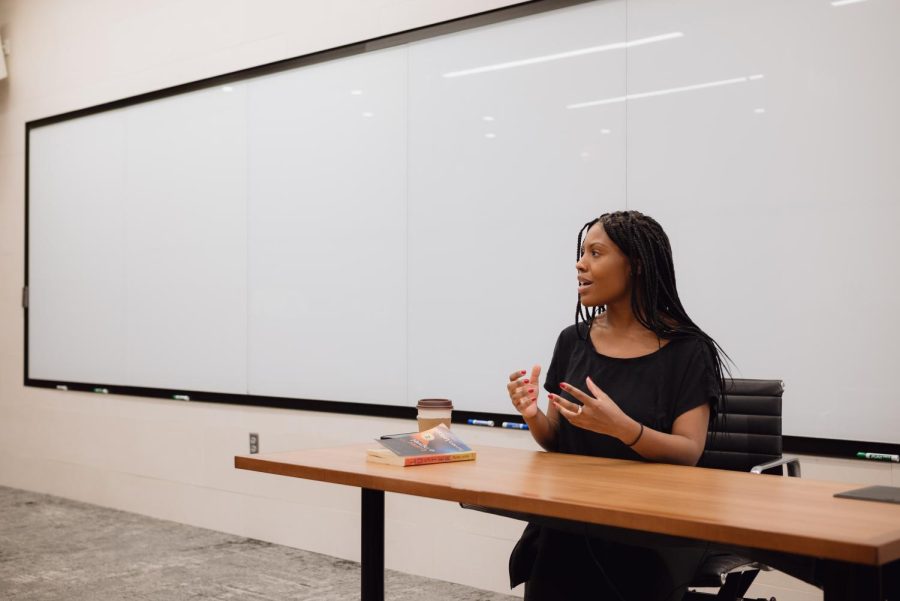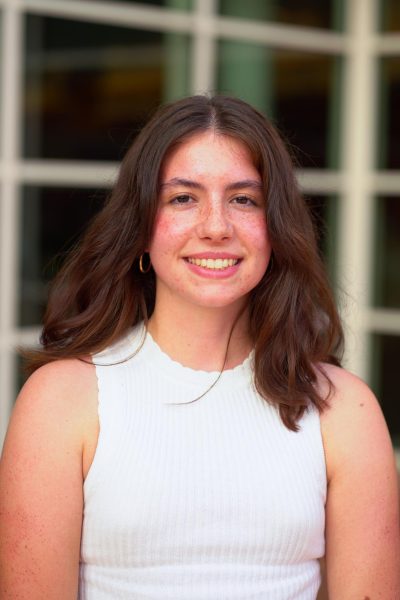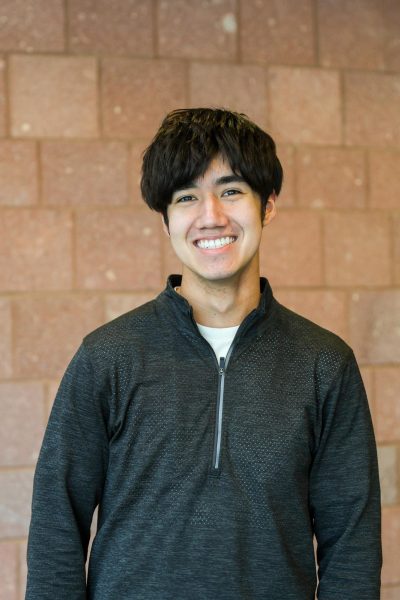This year’s Writers@Grinnell (W@G) Distinguished Author is Carl Phillips — poet, essayist and recipient of the 2023 Pulitzer Prize for Poetry for his book, “Then the War: And Selected Poems.”
Phillips had lunch with students in a roundtable discussion and later spoke at a reading on Thursday, March 7.
In an email to The S&B, Phillips wrote, “I’m very honored to be Grinnell’s Distinguished Author. I have had many friends travel to Grinnell to be the Distinguished Author during my 30 years here in the Midwest, so I had heard about the series and certainly hoped to be invited someday. And then I was, and I said yes!”
Phillips studied classics at Harvard and taught high-school Latin at the start of his writing career. He said that when he was a high school teacher, he had a set time after work that he would write, as he had less free time. Now, he is a professor of English at Washington University in St. Louis and has more time to write, so he writes poems as they come to him, he said.
The College’s Distinguished Authors program began in 2004. Current director of W@G Hai-Dang Phan, professor of English, said that when Distinguished Authors visit, the programming is a bit more interactive — Phillips, for example, had lunch with students and dinner with faculty.
Phan said that although the prizes the Distinguished Authors win are the first thing we see, that is not all there is to what distinguishes an author.
“What distinguishes them is that they’ve created a life in writing in which they’ve made something distinct,” said Phan. “They’ve created dangerously for them, for the public. They’ve made something new that can be a new way of thinking about a form, a new way of using words. They’re distinct in the way they challenge the world.”
Phan said that a goal he has for W@G is to make more of an effort towards community and collaboration. He cited the lunch with Phillips as an example of this — a way to casually bring together the author and students. In terms of collaboration, Phan said he wants to work with people outside of the English department and bring in a large variety of writers to appeal to more students.
Describing his writing process, Phillips wrote, “For poems, I just have to wait until the mood hits me, some evening when I feel I could write a poem if I tried. I find I’m not in a rush to write a poem, I don’t mind the period preceding the poem, what some people worry is writer’s block. I trust the poem will come in its own time.” Phillips said that he was moved to write a draft of a poem that references the wind farm near I-80 while in Grinnell.
Although he has been a writer for many years, Phillips said at the roundtable that he has tried not to remain stagnant in his style and writes differently now that he has had more experiences. “I think it’s kind of important to routinely get bored with what you do,” he said, referencing periods of growth and change.
At the roundtable, a student asked Phillips if he would ever write a novel, and he quickly said that he wouldn’t any time soon. He said that he has no story, no plot and no characters in mind. “I also just hate writing prose,” he said. In an email to The S&B, he described his process for writing prose as much more structured than for poetry. “You could say that I summon prose, whereas I wait as an attendant upon poetry,” he wrote.
During the roundtable, Phillips answered questions from the 26 attendees, sometimes posing the question back to the student. He remembered several students’ names from lunch while speaking with them.
Around 60 people attended the reading. Phillips read 16 poems from both “Then the War” and an upcoming book titled, “Scattered Snows to the North.” He said that he often does not know what to say between poems when reading to an audience. According to him, his work could be labeled as “lyric poetry.” During a Q&A after the reading, a student asked what can be gained from poetry. Phillips answered that poetry gives one a sense of interiority and compression, along with teaching “how much can be said in very few words.”
Nell Badgley `26 attended the reading in connection with English professor Paula Smith’s poetry class in which she read Phillips’ book of essays on writing, “My Trade is Mystery: Seven Meditations from a Life in Writing.” Badgley said that she enjoyed how approachable Phillips seemed — she said, “He wants people to kind of see him as a person and for it to be a conversation that’s very casual and inclusive, which I really enjoyed.”
Badgley said, “I felt very included in his work when he was speaking.” She noted that she and her classmates had previously read one of the poems aloud that he presented during the reading, and that it was beautiful to hear the way he read it himself.
“Scattered Snows to the North” is set to come out in August 2024.
